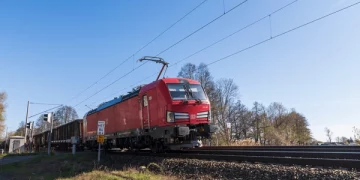Germany’s railway workers are presently staging a week-long statewide walkout in protest of their pay and working conditions. This labor conflict is probably going to cause more disruptions outside of Germany, impacting the nation’s inland freight transit system.
With a fresh notice on Tuesday, the Gewerkschaft Deutscher Lokomotivführer (GDL) intensified its continuing series of strikes. Another series of strikes resulted from the union’s declaration that it would not accept a recent wage proposal from Deutsche Bahn, the German train operator.
According to a Deutsche Bahn release, the GDL union has started a countrywide strike that will affect dispatchers, locomotive drivers, and other corporate workers in the transportation industry. The strike is set to run from January 23 to January 29.
A Hapag-Lloyd representative advised shippers to expect difficulties in rail freight as a result of the current, week-long strike by German rail workers, which is affecting ship handling at German ports. The spokesman did clarify that ships that were redirected around southern Africa will not add to port delays, since these ships are anticipated to arrive at North European ports in the upcoming weeks.
An official from Port of Hamburg Marketing guaranteed that there would be no major terminal constraints as a result of the current rail strike in Germany. The spokeswoman did concede, though, that port operators would have to adjust to expected changes in rail traffic. The spokesman emphasized that owing to the strike, rail transport businesses are expecting delays in the scheduling and administration of rail transport in the upcoming days.
With a 31% tonnage share of the European Union market, Germany’s rail freight transit will be significantly impacted by the strike, particularly as the network deals with severe winter storms in Northern Europe. The business is especially concerned about the potential wider effects of the strike on rail freight operations in the area.
The European Rail Freight Association (ERFA), which deemed the union’s action “disproportionate,” issued a warning, stating that the current strike will seriously impair the larger North European network. ERFA expressed confusion at the salary issue and highlighted how out of proportion the extended seven-day strike was, as well as how much it would affect rail freight movement.
The Rhine-Alpine rail line, which connects Rotterdam and Milan, is being disrupted by the involvement of other union members in the conflict, which is mainly between German train drivers and the DB Group. According to ERFA, impacted rail freight businesses are suffering significant financial losses on this vital route, which is leading to setbacks and a decline in consumer trust. The group considers it intolerable that rival railroads that are not part of the DB Group and that own substantial market shares are being brought into the GDL-DB dispute, resulting in furhter complications.























